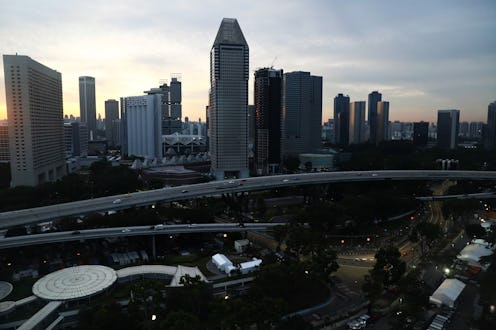News
Sweden's Immigration Policy Was Once More Lenient

The Trump administration referred to yet another non-existent atrocity on Saturday, with the president telling his followers that "what's happening last night [sic] in Sweden" is evidence that liberal immigration policies have run amok. It was a bewildering comment, given that nothing of note happened in Sweden the previous night, and that Trump later admitted he was referring to a brief segment about Sweden he'd seen on Fox News on Friday night. As worrisome as it was Trump for to do this, the episode did result in many people wondering: What is Sweden's immigration policy, anyway?
For years, Sweden prized itself as a haven for immigrants and refugees. According to the Spectator, the country accepts more refugees relative to its own population than any other developed nation, and in 2013, Sweden started giving immediate permanent residency to all Syrian refugees who'd successfully applied for asylum. The country took in 160,000 refugees in 2015, according to the New York Times and by the end of the year, around 10,000 refugees were arriving at Swedish borders every week.
However, this open door policy has resulted in a political backlash, and as a result, the country started tightening its immigration policy toward the end of 2015. After instituting border checks for the first time, the country passed legislation limiting the number of immigrants eligible for asylum, then tightened the restrictions even more the following year.
“We are adapting Swedish legislation temporarily so that more people choose to seek asylum in other countries," Swedish Prime Minister Stefan Löfven said in 2015. "We need respite ... it pains me that Sweden is no longer capable of receiving asylum seekers at the high level we do today. We simply cannot do any more.” Part of the animosity toward immigration and refugees has been fueled by the country's far-right political parties, one of which won almost 13 percent of the vote in a 2014 general election.
There's a good reason Sweden's immigration system has been under such strain: As of June, a staggering 65 million people worldwide were displaced by global conflicts, according to a United Nations report. That's more than at any other point in human history, and it was driven in large part by the seemingly-endless civil war in Syria, which has single-handedly produced almost 5 million refugees. Simply put, tens of millions of humans don't have homes anymore, and that's put pressure on countries around the world to step up and help out. On that front, Sweden has been far more helpful than most other countries.